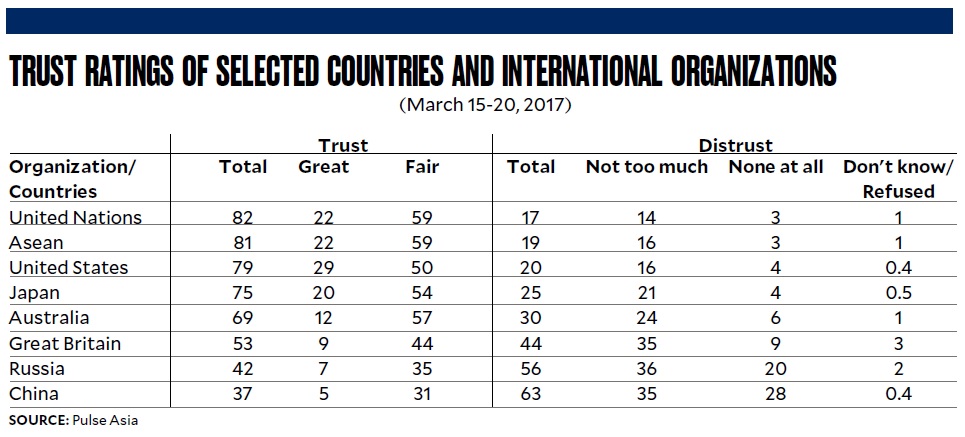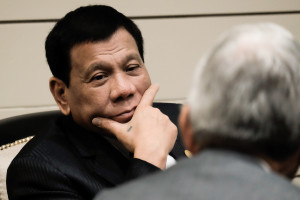
The nationwide poll, taken from March 15 to 20 with 1,200 adult respondents, found that 63 percent (from last December’s 61 percent) distrust China and 56 percent (from 58 percent) distrust Russia.
Pulse Asia said the only significant changes in public opinion during the period were the rise in the levels of trust in the United Nations (82 percent from 74 percent) and the United Kingdom (53 percent from 39 percent).
A majority still trust the United States (79 percent from 76 percent), Japan (75 percent from 70 percent) and Australia (69 percent) and the Association of Southeast Asian Nations or Asean (81 percent).
Across geographic areas and socioeconomic classes, the majorities trust the United States (75 percent to 88 percent and 72 percent to 80 percent, respectively); Japan (71 percent to 81 percent and 71 percent to 79 percent); Australia (67 percent to 75 percent and 68 percent to 74 percent); United Nations (77 percent to 84 percent and 77 percent to 82 percent), and Asean (73 percent to 83 percent and 78 percent to 82 percent).
Distrust is the prevailing sentiment toward China in every region and class (53 percent to 70 percent and 63 percent to 69 percent, respectively).
Russia also posted majority distrust ratings among classes (54 percent to 61 percent) and in the regions: the rest of Luzon (60 percent) and Visayas (62 percent), with a bare majority trust score in Metro Manila and Mindanao (51 percent).
Among the developments in the weeks leading up to the survey period were the resurgence of tensions in the West Philippine Sea after reported Chinese plans to build an environmental observation station on Panatag Shoal; issuance of Amnesty International and Human Rights Watch of separate reports highly critical of President Duterte’s war on drugs, and resumption of peace talks between the government and communist rebels. —INQUIRER RESEARCH


